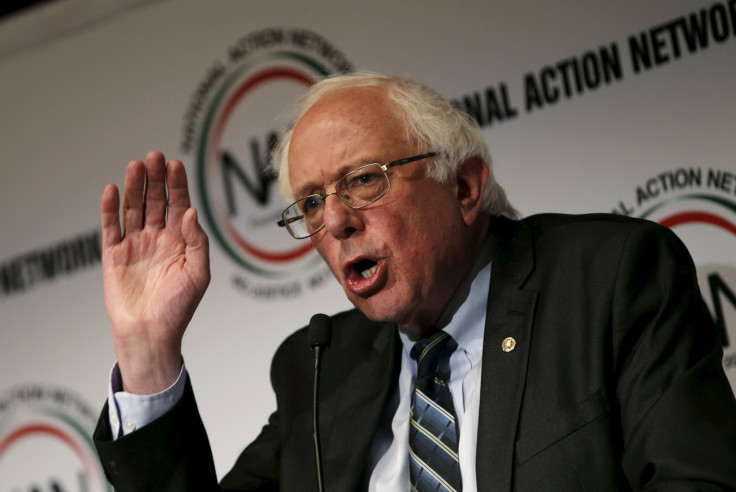Election 2016: Hillary Clinton Gains From Bernie Sanders Candidacy; 'I Am Running,' Says Vermont Socialist

WASHINGTON -- Presidential elections are hard to predict, but it's safe to say that Bernie Sanders will not be the Democratic nominee. The senator from Vermont told the Associated Press Wednesday evening, "I am running for president." He promised an official announcement on Thursday. He's an independent (who caucuses with the Democrats) and a self-described socialist who comes in dead last in hypothetical match-up polls.
He's just what the Hillary Clinton campaign needs.
Sanders' causes include battling Wall Street and ending oil subsidies. He surely doesn't expect to win, and he's well-known enough that he isn't running only to increase his name recognition. But a formal candidacy will bring attention to the signature issues he talks about every day -- there are more eyes watching a primary debate than the C-SPAN feed of speeches on the Senate floor -- and perhaps succeed in tugging the Democratic party even slightly to the left.
“There are the true believers, who use the primary season to advocate for policy positions that they feel have been overlooked by their party,” said William Bendix, a political science professor at Keene State College in New Hampshire. “Ron Paul, with his libertarian agenda, probably fit into this category. I would argue that Bernie Sanders is operating as a liberal crusader.”
Clinton has deliberately started her campaign slowly, holding roundtables and delivering focused speeches. She is expected to ramp up as summer begins, but by the time fall arrives, the demand for debates will increase. The Republicans will be vacuuming up most of the media attention and their crowded debate stages will dominate the conversation. Having a challenger to debate allows Clinton to get her slice of airtime.
Even if Clinton never sits down for an actual debate, the media will facilitate one. Clinton will be asked to respond to nearly every policy position Sanders -- and any other Democratic challenger -- takes. She’ll be able to test her responses and hone her message, especially on delicate issues like her relationship with Wall Street.
Sanders' presence in the field also will help Clinton spend money. That's right: not raise money, but spend it.
As President Barack Obama’s campaign proved in 2012, spending early in competitive states for the general election can be key to a campaign. Clinton will have money. But without an active campaign, she'd have little justification for running ads, and viewers might have little patience for watching them. Even token competition allows her to fill the airwaves with positive messaging in some of the general election swing states that are also early primary states -- Iowa, New Hampshire and Nevada, for example.
And Sanders' last, best gift to Clinton is that he's essentially certain to lose.
In a poll by Gravis Marketing of New Hampshire Democrats -- a state where Sanders would seem to have a shot, since he represents neighboring Vermont -- the senator received only 12 percent. A poll of Iowa Democrats by Loras College, which gave Clinton a strong lead at 57 percent, showed only 2 percent for Sanders -- even though 13 percent of those polled described themselves as “very liberal.”
© Copyright IBTimes 2024. All rights reserved.






















